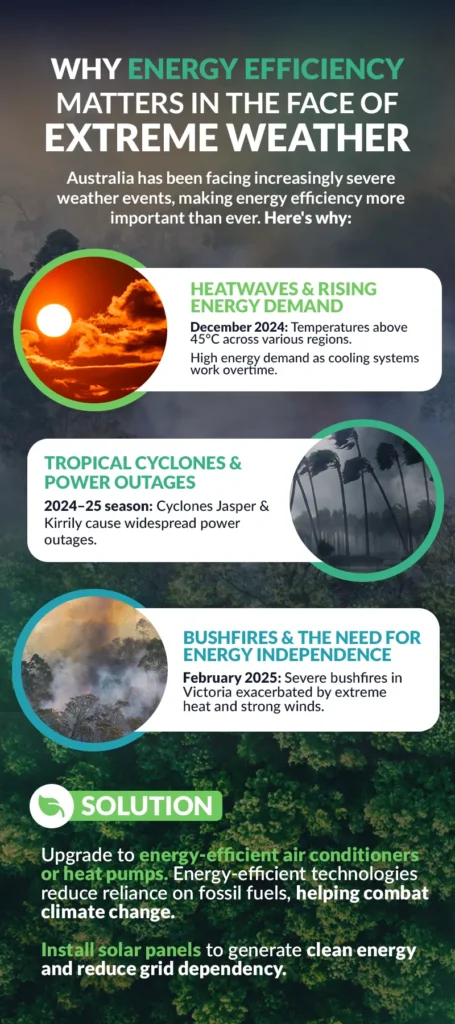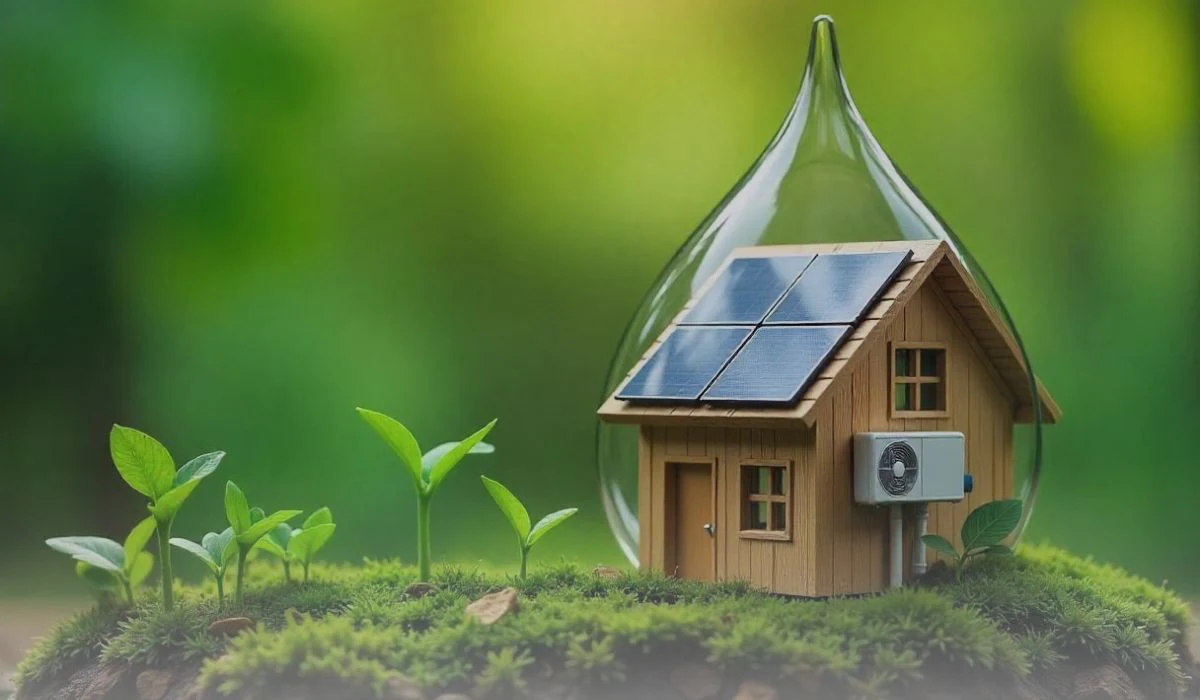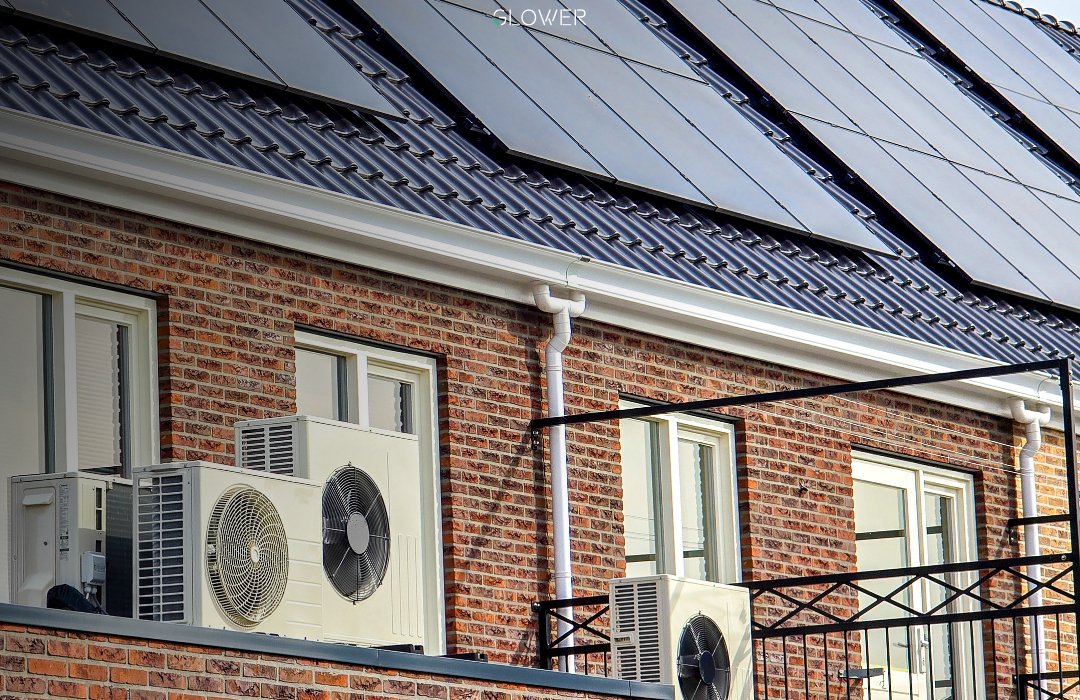As we move forward into 2024, the impact of our collective choices continues to grow. In March, thanks to our customers choosing energy-efficient solutions, we achieved an impressive reduction of 9,835 tonnes of CO₂ emissions. This represents a significant increase from previous months, showing that more Australians are making sustainable choices. But what does this number really mean?
🌿 Taking 2,141 cars off the road for a year.
🌱 Planting 468,000 trees.
✈️ Avoiding 89,400 one-way flights between Melbourne and Sydney.
🏡 Powering 1,400 homes with clean energy for a year.
Every month, as more people opt for hot water systems, energy-efficient air conditioning, and solar panels, the positive impact on the environment increases. This growth is not just a testament to the demand for better technology, it’s a step towards a cleaner, more sustainable future.
Why Energy Efficiency Matters in the Face of Extreme Weather
Australia has been experiencing some of its most severe weather events in recent years, with record-breaking heatwaves, intense storms, and devastating bushfires. These conditions not only put our infrastructure to the test but also highlight the urgent need for sustainable energy solutions.
🔥 Heatwaves & Rising Energy Demand
In December 2024, temperatures soared above 45°C in multiple regions, increasing the strain on the energy grid as households cranked up their cooling systems. Inverter air conditioners and heat pumps play a crucial role in reducing this demand by consuming up to 50% less energy and up to 80% less energy than conventional systems, helping keep homes cool without excessive energy consumption.
🌀 Tropical Cyclones & Power Outages
The 2024–25 season saw powerful storms like Cyclone Jasper and Cyclone Kirrily, which left thousands without electricity. By equipping homes with solar panels and battery storage, homeowners can maintain power even when the grid goes down, ensuring resilience during extreme weather events.
🔥 Bushfires & the Need for Energy Independence
In February 2025, Victoria faced severe bushfires, with soaring temperatures and strong winds worsening the situation. These fires emphasize the need for energy-efficient, low-emission technologies that reduce reliance on fossil fuels and lower the risk of contributing to climate change.

How Can You Reduce Your Home’s Carbon Footprint?
With extreme weather events becoming more frequent, taking steps to make your home energy-efficient is more important than ever. Whether through heat pumps, inverter air conditioners, or solar panels, reducing your energy consumption is not only beneficial for the planet but also for your energy bills.
🔹 Upgrade to an energy-efficient air conditioner or heat pump to lower emissions and reduce electricity use.
🔹 Install solar panels to generate clean energy and lessen dependence on the grid.
🔹 Take advantage of government rebates available in Victoria to make these solutions more affordable.
If you’re considering making your home more sustainable, there’s no better time to start. Book a free consultation with our team today and discover how you can contribute to a cleaner, greener Australia.
Together, we can turn every heatwave, storm, and bushfire season into a reminder of why sustainability matters more than ever.





